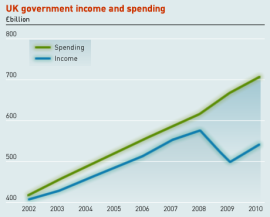Welcome to the Rudloe and environs website.
Here you will find news, articles and photos of an area that straddles the Cotswold Area of Outstanding Natural Beauty in north-west Wiltshire.
Contributions in the form of articles or photos are welcome. Even those with completely contrary views to mine!
Thanks to the website builder 1&1 and Rob Brown for the original idea.
Rudloescene now, in January 2014, has a sister, academic rather than anarchic, website about Box history here: http://www.boxpeopleandplaces.co.uk/
It contains thoroughly professional, well-researched articles about Box and its people.
Contact rudloescene through the 'Contact' page.

Rogues' Gallery (mayhap)
This week's (23rd April 2015) missive from Michelle appears below and here's my response ...
Noble cause (dementia care) Michelle but is this, again, electioneering?
You say "I have always campaigned for health and social care to be brought closer together". When? I have searched the Web and also tried to find your campaign material for your former prospective constituency, Wentworth and Dearne, without succeeding in finding anything. Your pre-election 'contract' with the people of Wentworth and Dearne has, strangely, disappeared from view. The one thing I managed to glean from the Rotherham Advertiser is the following: "Among the contract pledges are: a promise that she will always live locally, a pledge that she will publish details of her expenses and and assurance that she will hold regular surgeries for constituents. The document echoes the Conservative Party’s National Contract with Britain launched last week, which promises, among other things, to give voters the right to sack MPs, make Government and local council spending more transparent, increase spending on the NHS and increase the state pension."
Whilst down this side-track, the 2010 Conservative Party National Contract makes interesting reading - it includes the following:
- Cut the number of MPs by ten per cent, and cut the subsidies and perks for politicians.
- Cut ministers’ pay by five per cent, and freeze it for five years.
- Give local communities the power to take charge of the local planning system
- Act now on the national debt, so we can keep mortgage rates lower for longer
- Control immigration, reducing it to the levels of the 1990s – meaning tens of thousands a year, instead of the hundreds of thousands a year under Labour.
- Increase spending on health every year, while cutting waste in the NHS, so that more goes to nurses and doctors on the frontline, and make sure you get access to the cancer drugs you need.
- Support families, by giving married couples and civil partners a tax break, giving more people the right to request flexible working and helping young families with extra Sure Start health visitors.
These promises are laughable. Control immigration? Give local communities the power to take charge of the planning system? National debt! In these respects, we could say "the mess left by the last Tory government".
Similarly with regard to the serious problem of dementia, the following letter was published in The Times on 6th April 2012:
Sir, Andrew Lansley’s letter (Apr 5) continues the tradition of British politicians using bluff and bluster. “We want to make the UK a world leader in tackling dementia” — a good start would be to lift the UK from the bottom of the European league table of Alzheimer’s diagnosis, as it was reported to be in national newspapers just one year ago: delays were more than twice as long in Britain as in Italy and Germany, and nine months longer than in Poland.
Paul
Turner
Corsham, Wilts
You are certainly correct therefore with your "there is still more to do" but I believe that your "We’ve come a long way in terms of dementia care
and research in the past few years" continues the 'tradition' mentioned in the letter. Britain continues to bump along the bottom of European tables in many aspects of health care from stroke and
heart attack recovery rates to long-term cancer survival.
So who is responsible for our poor health outcomes? As with all aspects of our infrastructure, it is governments who are ultimately responsible. In
the 70 years since the war, we have had nine Labour governments with a total of thirty years in power and nine Tory governments with a total of forty years in power. Clearly our system of
switching between the two major parties isn't working not just in terms of health care but in many other aspects of national life. We need a new politics of consensus, for the good of the people not
the parties, as is practised in continental Europe.
And we should start with a fair electoral system. I have 'ranted' on these pages against the Tory candidate for the Chippenham constituency but I live in the North Wiltshire constituency! Why?
Because North Wiltshire (formerly Chippenham) has been a safe Tory seat for the best part of 100 years - there is no point in ranting (or voting) here (unless you are a Tory). A postcode lottery of
an electoral system is no way to run a country.
Michelle Donelan's 23rd April newsletter
|
|||||||
|
18th April 2015 - response to Michelle Donelan's latest missive
Aaah Michelle ... how many more Tory heavyweights are we going to have shipped in to try to wrestle Chippenham away from the Liberal Democrats?
“My home is here”. Really, how come? Were you also shipped here by Tory Central Office, in 2013, with the express intention of fighting this marginal seat?
“Working damn hard”. Like the miners? Remember them – working damn hard and then thrown on the scrapheap.
I loved this bit so much that I have copy/pasted it:
“I am fed up with politicians trying to trick voters into voting for them with negative campaigning about
their opponents. It is desperate stuff, insulting the people’s intelligence. So this is what I am for, rather than what I am against. Hold me to account on it – I won’t let you
down.
Nationally – why is this area so important?
The national choice is clear. It is between the leadership, security and competence of David Cameron as Prime Minister,
or the chaos of Ed Miliband trying to cobble together a group of SNP, Liberal Democrats, Greens or whoever will put him into Downing Street.”
Hard to believe that Michelle has forgotten “what she is for” within one paragraph! Talk about insulting people’s intelligence! And she follows this with another negative paragraph (“Last time …”) about the Lib Dems. Also in this para. is a basic grammatical error (from a university graduate) – “his remaining MP’s” should read “his remaining MPs” – one MP, two or more MPs – this is a plural – no apostrophe Michelle.
Any road up (as they would say in Michelle’s former prospective constituency) enough of this pedantry; on to substantive matters. Michelle’s plan for the Chippenham constituency divides into seven principal areas (e.g. More local jobs, Protect our countryside etc) and forty specific targets. Many noble causes no doubt but as with most MPs (no apostrophe) of all shades, this is bluff and bluster, pure electioneering. Forty targets is way beyond any one person’s capacity to deal with substantively. Let’s just deal with one of the targets here – “Re-open Corsham Station”.
There is absolutely no point in re-opening stations that would have no services. The only passenger trains on this route are the inter-city HSTs and these certainly would not stop at Corsham. Over many years, MPs and others have, for many reasons, been campaigning (and failing) to initiate an Oxford – Bristol service which would, it is hoped, precipitate the re-opening of Corsham and Wootton Bassett stations. However, thanks to the expensive shambles that is our privatised railway system, there is little rolling stock that could operate this service. A few years ago, after having had to sit in the luggage rack of such a local service from Dorchester to Westbury, I wrote to Mark Hopwood, the managing director of First Great Western, and he responded as follows: “Of course we know crowding still exists, but we are very limited in what more we can do to address the situation, at least within the terms of this franchise. This is because there is simply no more rolling stock available for us to lease. We have quite literally been given everything that there was spare”.
There is much material available on the subject but I’ll just quote from Wikipedia here: “The privatization of British Rail led to a hiatus in the ordering of rolling stock, which predictably led to the almost complete collapse of the rolling stock manufacturing industry. When purchases of rolling stock resumed, with little remaining capacity in the UK contracts were increasingly placed overseas”. Interesting isn’t it that with privatisation being heralded as the cure for the supposedly ailing British Rail, HSTs which were designed and built by British Rail Engineering (BREL) at Derby and Crewe, are still, forty years after their introduction into service, providing inter-city services; privatisation has brought nothing better. The ‘British’ BREL, like everything else, was sold off and is now owned by a Canadian company, Bombardier. Similarly, the train operating companies (TOCs) are in the hands of many foreign railway organizations. The twelve franchises listed below are in the hands of the state-owned (ironic isn’t it!) SNCF, Deutsche Bahn and Nederlandse Spoorwegen! Even the royal train is powered by German-owned (Deutsche Bahn) locomotives (also ironic!).
|
British Rail |
Franchise |
Foreign Owners |
|
InterCity Cross Country |
||
|
Network SouthEast Chiltern |
||
|
Merseyrail part of Regional Railways |
50% owned by Nederlandse Spoorwegen |
|
|
50% owned by Nederlandse Spoorwegen |
||
|
InterCity East Coast |
||
|
InterCity Anglia |
||
|
50% owned by Deutsche Bahn and 50% by MTR (Chinese!) |
||
|
35% owned by SNCF |
||
|
35% owned by SNCF |
||
|
35% owned by SNCF |
||
|
45% owned by SNCF |
The following paragraph (also from Wikipedia) perhaps illustrates the shambles that is our privatised railway system.
“The Railways Bill, published in 1993, established a complex structure for the rail industry. British Rail was to be broken up into over 100 separate companies, with most relationships between the successor companies established by contracts, some through regulatory mechanisms (such as the industry-wide network code and the multi-bilateral star model performance regime). Contracts for the use of railway facilities - track, stations and light maintenance depots - must be approved or directed by the Office of Rail Regulation although some facilities are exempt from this requirement. Contracts between the principal passenger train operators and the state are called franchise agreements, and were first established with the Office of Passenger Rail Franchising (OPRAF), then its successor the Strategic Rail Authority and now with the Secretary of State for Transport”.
All this time and money wasted in a complex structure of companies and regulators with contracts required between all elements. Franchises being let by the government give little inducement for long-term investment as the bottom-line is short-term profit (or rather reduction of losses) – this is the principal reason that no HST replacements have been introduced – why should a company invest heavily in new rolling stock only to lose its franchise in years to come.
The ‘problem’ with British Rail was lack of investment. More money has been pumped into our privatised system by governments than was ever made available to British Rail. What the railways need, and needed, was a long-term strategic vision with associated investment as has happened across the channel with our near neighbours, the French, the Germans and the Dutch. Instead, we have a typically British fragmentation, lacking any long-term, national goal of an integrated transport infrastructure. The Germans, French, Dutch and others have taken advantage of an absurd system created by Michelle’s Tories.
Re-open Corsham Station? In the second decade of the 21st-century, First Great Western (aka Worst Great Western or First Great Western Apologises) is not able to provide any more 'cars' because "there is no more rolling stock to lease" for existing services never mind new ones. Anyway, this is a relatively short-term issue compared with the bigger picture of regenerating our rail transport infrastructure. The Corsham Station project could be seen as a cameo in this regard. The re-opening of part of the Waverley Route between Edinburgh and Galashiels and the re-opening of the Portishead line are major taxpayer- or ratepayer-funded infrastructure projects. The Waverley Route (part) has so far cost the taxpayer £50 million but this is, and will be, money well spent for this and future generations with its mitigation of road traffic jams, parking problems and environmental damage in south Edinburgh and other locations along the route. Similarly, the Portishead line is needed for the same, common issues of road traffic jams, lost time, pollution etc. In July 2012, a £1 billion government 'City Deal' was announced which included funding for MetroWest including the Portishead line (note - taxpayers' money). Similarly, in April 2013 North Somerset Council announced that £1.35 million (note - ratepayers' money) had been allocated by four unitary councils towards preparation work for this line.
As indicated, these infrastructure projects are, and will be, taxpayer- or ratepayer-funded. There has been no mention of privatisation at this stage. Why? Because a national transport infrastructure requires a national plan; there is no profit in creating infrastructure; as with our road network (apart from certain toll roads) our infrastructure is planned and constructed for the benefit of the nation, the people. Privatisation will only come about when certain people see a profit to be made out of something that has been funded by the taxpayer. This is why privatisation of the railways (and other privatisations e.g. water companies like Wessex Water which is owned by YTL, a Malaysian company) was so wrong. Gordon Brown may have sold off the family gold but the Tories have sold the family silver big-time with our infrastucture now largely in the hands of foreign companies who do not, fundamentally, give a damn about any national plan - they are in it for profit.
My challenge to Michelle - get a private company to build Corsham Station.
|
|||||||||||
|
Myth, chicanery, distortion, fabrication
Once again in this week’s (31st March) newsletter (see below), Michelle repeats “hard-working” and “the economic mess we inherited from Labour”. These mantras became tiresome way before this election campaign but their repetition at every opportunity characterizes a campaign (hers and the Tories) devoid of intelligence and imagination.
I shouldn’t have to replay this but research the global financial crash of 2007/8 and you will find in any academic paper or industry report or studied newspaper or magazine article, the underlying reasons for the crash. Examples below:
from The American Spectator, May 2011:
“ … there were weaknesses in the financial system -- failures of regulation and risk management, excessive leverage and risk-taking -- that were responsible for the ensuing devastation”.
from The Economist, Sept 2013:
“The collapse of Lehman Brothers, a sprawling global bank, in September 2008 almost brought down the world’s financial system. It took huge taxpayer-financed bail-outs to shore up the industry. Even so, the ensuing credit crunch turned what was already a nasty downturn into the worst recession in 80 years.
With half a decade’s hindsight, it is clear the crisis had multiple causes. The most obvious is the financiers themselves—especially the irrationally exuberant Anglo-Saxon sort, who claimed to have found a way to banish risk when in fact they had simply lost track of it. Central bankers and other regulators also bear blame, for it was they who tolerated this folly. The whole system was revealed to have been built on flimsy foundations: banks had allowed their balance-sheets to bloat but set aside too little capital to absorb losses. In effect they had bet on themselves with borrowed money, a gamble that had paid off in good times but proved catastrophic in bad”.
from University of Ulster paper on the global financial crisis, Mar 2009
"The origins of the financial crisis are firmly embedded in the deregulation in financial markets and the innovations in financial structures including Asset Backed Securities and Collateralised Debt Obligations. Financial innovation has improved liquidity and enabled investors to spread risk through international diversification. The downside is that the global implications of the current downturn are more profound than anything previously witnessed. The collapse of the subprime residential mortgage market in the US was the catalyst for the financial crisis. There is $900 billion in sub-pime paper on the balance sheets of the world’s financial institutions …”
and from the Bank of England’s Monetary Policy Committee, Nov 2013
“Housing was at the centre of the financial train wreck of 2007-08 that has seriously damaged most rich countries. In many countries the effects of that crisis on the wider economy have been large, negative and persistent”.
So, as I said, these are just some examples of learned, professional articles on the 2007/8 global financial crash. Nowhere here will you find “an economic mess left by the last Labour government” which is simply absurd, fatuous propaganda and electioneering of a kind that treats the electorate as dimwits. The trouble is that this repetition has been going on for five years and the old saying ‘repeat a lie often enough and it becomes the truth’ comes into play as does (apologies for repeating this!) ‘history, twisted by knaves to make a trap for fools’.
Should the Tories be re-elected then the old adage 'Those who cannot remember the past are condemned to repeat it' will, no doubt, come to pass. Interest rates have been kept artificially, politically low for some years; as soon as they start to rise, then we will see another 'sub-prime' (all housing is unaffordable now) housing debt crisis with mortgage defaults, repossessions etc. And at the 2020 election, the mantra will mutate to 'the economic mess inherited from the Tories'.
Here's some information on 'the deficit' and 'the debt':
The Deficit
The chart (unknown source unfortunately) shows the year-on-year 'deficit' (the gap between government income and spending) increasing marginally until the financial crash of 2007/8 since which time the gap (yes, thanks to the present government) has been getting back to pre-crash levels.
However, the national debt (the total amount the UK owes) has been increasing year-on-year and is forecast to continue increasing (see chart below).
The Debt
Whilst the national deficit has been decreasing since 2010, the national debt (the total amount owed by the UK) has been increasing and is forecast to continue to increase.
This chart was obtained from a marvellous source of any and every possible financial/economic/industrial chart and information here: http://www.ukpublicspending.co.uk/
And here's a BBC article on the subject: http://www.bbc.co.uk/news/business-25944653 which edges around debts and deficits. In the UK Budget, the Treasury usually talks about a Public Sector Borrowing Requirement (or now, the Public Sector Net Cash Requirement) rather than 'the deficit' and that includes borrowing for local authorities as well as central government. And what about the NHS PFIs - does their debt count in the national debt or the deficit or neither? According to The New Statesman, the NHS is riddled with extortionate debt from decades of misguided PFI deals. Private Finance Initiatives - another example of government mismanagement (yes, both Labour and Tory) of the NHS. NHS hospitals owe £80bn in PFI loan unitary charges – in other words, the ongoing costs of maintaining PFI hospitals and paying back the loans. In 2015 alone, trusts will make some £2bn in repayments. With all this money going west, no wonder the UK still has many of the worst health outcomes in Europe
So let's have a reasoned debate about this Michelle, not mudslinging.
Prospective Chippenham Tory candidate Michelle Donelan's 31 March newsletter
|
|||||||||||||||||
|
|||||||||||||||||
|
Rich richer, poor poorer
There’s been another email exchange (27th - 31st March), shown below, with our dear Michelle regarding the Tory mantra “hard working people” … allow me to expand (‘Call me Dave’ has said he would like to see election issues debated so I’ll take him up on the offer).
In the 1980s a significant shift from the public sector provision of elderly care to private sector homes occurred, with the proportion of private facilities increasing from just 18% in 1980 to 85% by the end of the century (from Wikipedia). This shift illustrates the success of the Tory privatisation doctrine (I will perhaps start on the railways, my pet subject, later).
Prior to 1980, most care homes were run by local authorities. They were well-run, staff were well-paid and motivated (we have 20-years worth of experience in this household). Privatisation and its required profit have seen staff paid the minimum wage for all shifts whether it be night or weekend (including Sunday) – so £6.50 per hour for working a Saturday/Sunday night shift! As I have said in a previous article, this level of pay is not a living wage so workers are forced to claim benefits funded by the taxpayer.
Taxpayer subsidy of low-paid workers allows company bosses and investors in those companies to reap richer rewards (this is the Tory aesthetic, or ethic, isn’t it – the rich becoming richer and the poor poorer?). Take investment company IQ whose website ‘headline’ is “Creating wealth through knowledge and secure investments” and later “Why invest in the care home industry?”. Apparently “Banks and lending institutions are becoming very eager to lend within this industry due to the long term, robust and lower risk income streams that it offers”. Delighted clients state “In IQ I feel I have found a company who I believe has my best interests at heart” and “in-depth knowledge of the local area and ability to understand exactly what we wanted made the buying process so simple”.
This is the privatised world – the “best interests” of investors while taxpayers support low-paid staff and the aged have to suffer the consequences.
Yet it needn't be this way. Whilst the performance of the French economy is currently being derided, it is still larger (and companies more successful) than the UK's economy. This is in spite of its Code du Travail (employers regulations regarding workers) weighing in at more than 2kg. Look how many successful (publicly-owned in some cases) French companies operate here in the UK - Alcatel, Alstom, Astrium (in Corsham!), ATOS (running our disability claims system!), AXA, EDF, Lafarge (cement), Sodexo (services including works canteens), SNCF, Thales (defence, aerospace, transport - offices in Reading) and so on.
In France with its highly-regulated companies, 57 per cent of institutional care facilities are public facilities, about 27 per cent are private not-for-profit facilities and around 16 per cent are private for-profit facilities. Rather than deriding the French way, I think we should more use it as a model.
The email exchange
Michelle,
To: wirepuller@hotmail.com
Subject: RE: Giving local residents security in retirement
Date: Fri, 27 Mar 2015 18:16:51 +0000
Dear Mr Turner,
Thank you for your email please rest assured I am on the side of all those who work hard or would like to be able to but cannot. This phrase is simply is used to express that. I am standing to be your next MP to help improve our local area my local plan and create more opportunities for local people. You can find out more information at michelledonelan.com
Best wishes,
Michelle
Dear Reader (yes, you),
You may wonder (but you probably don't) why I have an ongoing dialogue with the prospective Tory candidate for the Chippenham constituency on these pages. Well, for one thing, I just happen to be on her mailing list. But the other reason is that the North Wiltshire constituency (currently and in its former life when it was Chippenham) has been Tory since the collapse of the Liberal vote (and the party) in the 1920s. So there is no point in dialogue here; in fact there is no point in trotting off to the polling station here. I must be barmy - I have voted in every election since 1964 (thirteen general elections I believe) and my vote has never counted towards anything. With our postcode lottery, first-past-the-post system, voting in safe seats (unless you vote for the 'sitting' party) is an absolutely futile exercise - 50 years of worthless voting in my case.
Anyway I should, perhaps, have been more expansive in my response to Michelle Donelan’s latest, 20th March 2015, email.
Thatcher’s monetarist policy of reducing inflation and its corollary of high unemployment, which rose from 1.4 million in 1979 to 3.2 million in 1984, was the seedbed of our supposed benefits ‘culture’ which has been so derided by the present government.
In 1986 deregulation of financial markets, the Big Bang, was the seedbed of the creation of financial ‘instruments’ to make money through, for example, packaging debt, derivatives (whatever they may be), futures – all sorts of exotic, imprudent methods of investment gambling. The complexity of this imprudence was bound to end in tears and it did, after American (subprime) mortgage debt effectively precipitated the 2007 financial crash (and none of our high-paid, expert City executives whose inflated salaries are necessary to attract the “best” people, saw it coming) . The lending of money, in the US, to those that couldn’t afford repayments had been reflected in the UK since the 80s. Maxed out on your credit card? We’ll increase your spending limit. Or another bank will give you new card without compunction. When I worked in Belgium, I had a credit card with a Belgian bank. The monthly limit was 2,500 euro and the total amount spent in month A was automatically taken from my bank account in month B – so no possibility of accumulating debt. Contrast the UK where banks positively encouraged people to accumulate debt – the result of deregulation, demutualisations and imprudence. And who had to bail out the high-rolling, irresponsible, deregulated bankers – you did, my dear taxpaying reader. And the b******s (there’s six stars there!) still take their bonuses.
A property-owning democracy – bloomin’ marvellous. However, speculators or buy-to-rent, millionaire (or multi-millionaire) landlords now own a substantial percentage of ex-council property. It was first revealed by Danny Dorling (geography professor at Oxford) in his 2013 book All that is Solid that Charles Gow, the son of Ian Gow, Thatcher’s minister who presided over the Right to Buy scheme, is a housing tycoon, owning more than forty (perhaps ninety-three according to another source) ex-council flats in one London estate alone. A report published in January 2013 by London Assembly member Tom Copley, From Right to Buy to Buy to Let,showed that 36% of homes sold under Right to Buy in London (52,000 homes!) were in the hands of under-regulated, private landlords. So the Right to Buy scheme has resulted in multi-millionaire private landlords renting ex-council properties (often through councils) to tenants, many of whom are on housing benefit subsidised by the taxpayer! Get the picture? The great council house sell-off has culminated in the rich taking advantage and you, my dear taxpaying reader, subsidising the rents of their tenants. The seedbed of today’s supposed housing crisis.
The mantras “hard working people”, “the mess left by the last government” and so on have been programmed at Tory madrassas and trumpeted by their mouthpieces for five years – history, twisted by knaves to make a trap for fools (thanks Rudyard)!
Michelle,
Paul Turner
|
|||||||
|
(the following response sent by email)
Michelle,
|
|||||||
|













